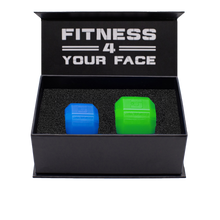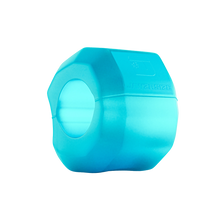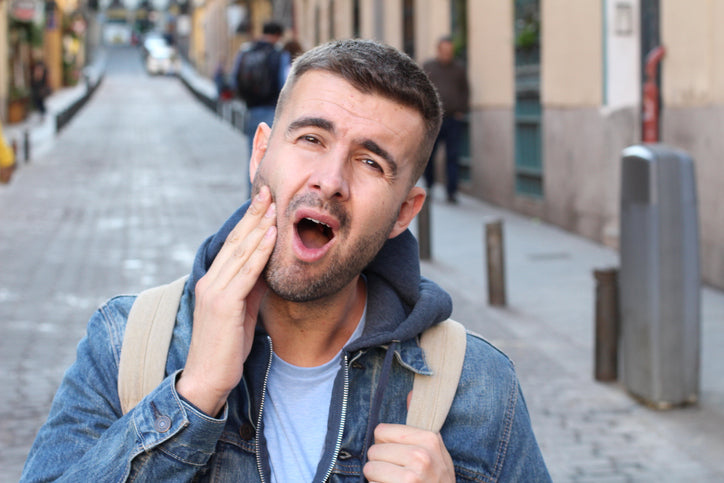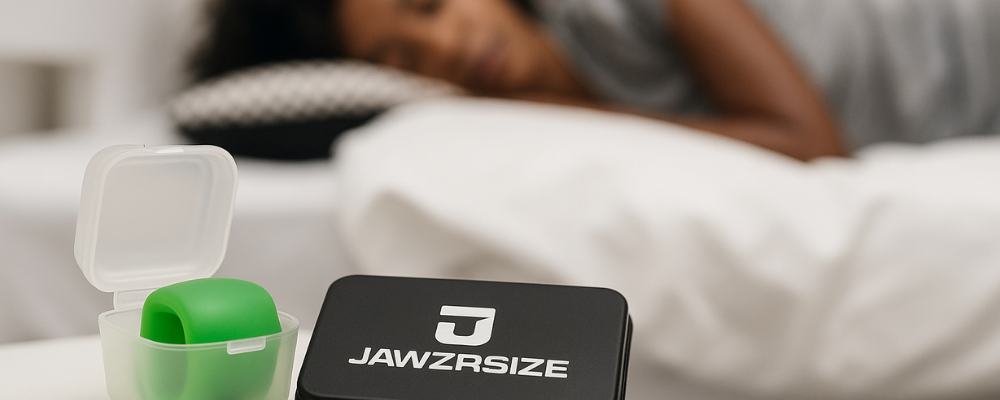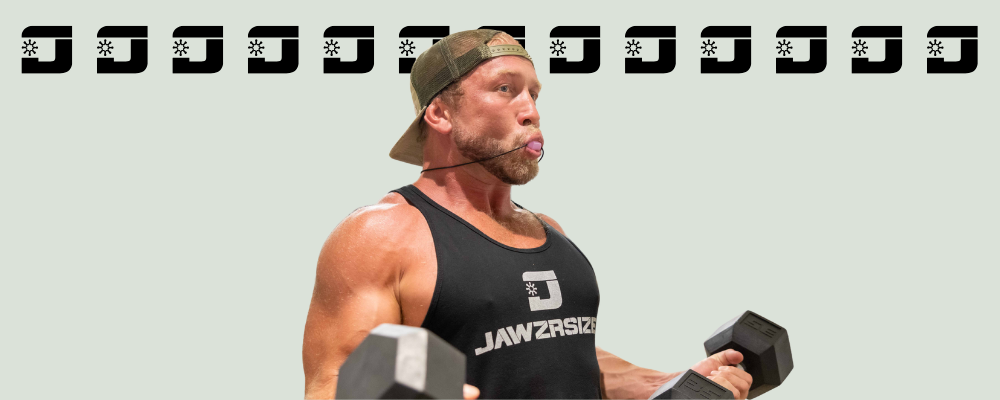Jaw tightness can result from several factors, including injury, stress, inflammation and anxiety, among other things. The condition can occur gradually or suddenly on one side of the jaw, or both.
You can experience other side effects like headaches, pain in the ears, neck, face, or teeth, and you may feel even more discomfort when yawning and chewing. The pain varies based on the severity and can range anywhere from throbbing to tender pain and tightness. If you've ever wondered "why does my jaw feel tight?" or you just want to learn how to loosen tight jaw muscles, we’re here to help.
Common Causes of a Tight Jaw
If you wake up with a headache in the morning or often experience sore facial muscles, clicking, or locked jaw, you may be suffering from a tight jaw. Below are the most common causes of jaw tightness. Once you know the root of the problem you can move onto a solution, meanwhile, these 7 Exercises to Relax Your Jaw and Face will be helpful for you.
TMJ Disorders

Everyone has a pair of temporomandibular joints that are located just in front of the ears. The joints connect the jawline to the skull with a sliding joint that allows the mouth to open and close. Disorders in the joints are usually a combination of conditions resulting in dysfunction and pain in the jaw joint and the facial muscles responsible for jaw movements.
- Headaches
- Difficulty opening your mouth or chewing
- Clicking sound during jaw movement
- Painful or tender jaw muscles
Stress and Anxiety
Stress and anxiety can result in tension of the shoulder and neck muscles. Some people unknowingly clench their jaw, similar to how someone might clench their hand into a fist when angry. This causes the muscles around the jaw to tighten.
Bruxism
Bruxism refers to the action of unconsciously grinding or clenching your teeth. It is a common occurrence in individuals experiencing chronic stress, but can also result from misaligned teeth, dental problems or genetics. This can occur both when awake and during sleep.
Its symptoms are similar to TMJ disorder, which include:
- Headaches
- Clicking sounds when moving the jaw
- Stiff or tender jaw muscles

Chewing Gum
Chewing gum is a simple habit many people incorporate into their daily lives. However, Medical News Today notes that chewing too much can result in overexerting the jaw, which leads to muscle tightness.
Osteoarthritis
Osteoarthritis is a chronic condition that primarily affects the joints. Most commonly, the disease affects the hands, hips and knees, but can also affect the TMJ. Severe TMJ osteoarthritis cases can result in the dysfunction of the jawbone and the surrounding tissues. This is most prevalent in people above the age of 65 years.
Rheumatoid Arthritis
Rheumatoid arthritis is one of the autoimmune disorders that result in the inflammation of joints and muscles all over the body. Most rheumatoid arthritis patients experience temporomandibular conditions, which make them experience jaw tightness.
The worst RA cases can also cause loss of the jawbone and damage to the surrounding tissues.
Tetanus
Although uncommon, tetanus is a severe bacterial infection that can cause painful jaw and neck muscle contractions. In extreme cases, it can result in the inability to open the mouth and swallow.

Tips to Relax Jaw Tension
If you’ve read this article up to this point, you’re probably serious about learning how to alleviate tension in your jaw muscles. Here are some tips to consider.
Use of Mouthguards
Wearing a mouthguard is a useful way to ease jaw tightness, especially if the tight jaw results from teeth grinding or clenching during sleep. There are different types of mouthguards, and just like a Jawzrsize device, some can even help you correct a misaligned jaw joint. However, it would be best to have a custom-made mouthguard to wear while you sleep if you suffer from this specific condition.
Jaw Joint Stretches
Jaw joint exercises help to increase the jaw muscles' range of motion and ease temporomandibular disorders. You can try any number of jaw stretches, including the two outlined below.
The Resistance Mouth Opening stretch is a simple process that involves:
- Holding the tip of your chin in the right hand, allowing the thumb to rest under the chin while the index finger wraps around the front
- Pushing the right hand against your jaw softly
- Opening the jaw slowly while pushing against the chin
- Hold in that position for a while, then close the jaw slowly
The Goldfish exercise is also simple and effective and it’s done by:
- Pressing the tongue against the roof of your mouth
- Placing your index fingers on the chin and the temporomandibular jaw
- Lowering the jaw as far as you can
- Closing the jaw and repeating the steps
Use of Shortwave Diathermy
This method of reducing jaw tightness involves the use of high-frequency electromagnetic waves to treat joint inflammations that cause jaw tightness. The technique is also useful in easing the pain associated with TMJ.
Use of Supplements
Several supplements such as Vitamin C, Magnesium and Calcium have been proven to relax the muscles that cause jaw tightness, as well as help rebuild cartilage. However, supplements alone will not permanently solve your jaw tension problems.
Final Word

Jaw tightness symptoms can be easy to identify. Doing simple stretches can help ease the tension, however, it’s important to find a dentist or doctor to review your condition.
Specialists can review your medical history and conduct tests such as MRI scans, CT scans and X-rays to find the best proactive measures. These imaging tests will help identify underlying conditions such as structural abnormalities and inflammation, so you can adopt the most effective course of action to ease your jaw tension and pain.

